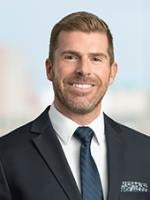Highlights
HHS-OIG issued a Notice of Modification of Advisory Opinion No. 20-04, which allows a charitable organization to purchase and receive medical debt owed by certain qualified patients and forgive such medical debt
The modification would permit hospitals and other providers to disclose the sale or donation of patient debt when reporting the hospital’s community benefits and/or financial assistance policies and permit the charitable organization to identify certain providers by name in marketing materials
HHS-OIG did not impose administrative sanctions on the charitable organization in connection with the modified arrangement
On April 24, 2023, the Office of Inspector General of the U.S. Department of Health and Human Services (HHS-OIG) issued a Notice of Modification of Advisory Opinion No. 20-04 regarding a charitable organization’s proposal to publicize the purchase or donation of unpaid medical debt owed by qualifying patients from certain types of healthcare providers, and the charitable organization’s forgiveness of that debt.
The advisory opinion allows a charitable organization that raises funds for relieving billions of dollars of medical debt owed by low-income patients to 1. purchase and receive from providers the donations of medical debt owed by certain qualified patients to the providers and 2. forgive such medical debt in a manner that improves the credit history of patients so long as the charitable organization and providers comply with certain conditions enumerated in the advisory opinion.
At issue is whether publicizing the forgiveness of individual patients’ medical debt could be used to generate future business for hospitals or providers, or incentivize or influence patients to seek items or services from those hospitals or providers.
Despite the potential implications under the Anti-Kickback Statute (AKS) and the beneficiary inducement civil monetary penalty rules (CMP Beneficiary Inducement), HHS-OIG determined the unique facts concerning the charitable organization’s modified arrangement, including the self-imposed limitations and disclosures concerning the publicizing of medical debt forgiveness, caused it to be sufficiently low-risk and not to warrant administrative sanctions.
Existing Arrangement
The entity involved is a 501(c)(3) charitable organization that raises funds from individual donors, foundations, faith-based organizations, and corporations to address the medical debt crisis by locating, buying, and forgiving the medical debts of individual patients living on less than 200 percent of the federal poverty level. The organization buys or receives donated debt directly from hospitals and certain other providers. The debt it buys or receives under the existing arrangement is debt that a provider has tried and failed to collect and has deemed “uncollectible” under Medicare bad debt rules.
The organization uses objective eligibility criteria to determine which debt to receive, purchase and forgive and informs patients when their debt is forgiven. There are many conditions of participation set forth in the advisory opinion, including, but not limited to: 1. providers agreeing to not publicize the sale or donation of debt to the charitable organization, and 2. the charitable organization agreeing not to identify providers by name in any promotional or marketing materials that are available to the public.
Proposed Modifications
The organization proposed to modify the conditions that prohibit providers from publicizing the sale or donation of debt to the charitable organization and identifying providers by name in promotional or marketing materials that are available to the public.
Disclosures by Participating Hospitals
To support its request for modification of the condition against publicizing the sale or donation of debt, the organization highlighted that many hospitals are required to provide community benefits and adopt financial assistance policies. It also noted that certain federal and state laws may require them to publicize such community benefits and financial assistance policies.
As such, the organization certified it would modify its condition of participation to allow the participating hospital to disclose the sale or donation of patient debt to the charitable organization, but only in a context relating to reporting the hospital’s community benefits or financial assistance policies. It further certified it would require any disclosure of a hospital’s sale or donation of its debt to expressly explain that the debt was sold or donated only after the hospital tried and failed to collect the debt, and after the charitable organization determined the patient meets its financial need requirements.
Additionally, the organization certified that it would prohibit participating hospitals from disclosing the hospitals’ role in selling or transferring patient debt in any promotion, advertisement, marketing materials, or other public statement relating to the hospitals’ services.
HHS-OIG noted that, because of the limitations the charitable organization would impose on participating hospitals in connection with any publication or disclosure of a hospital’s role in selling or transferring patient debt, any such publication or disclosure might lead to a general sense of goodwill about the hospital, but would not be likely to generate future business for the hospital.
Disclosures by the Charitable Organization
As part of the charitable organization’s request for modification of the condition prohibiting it from identifying the hospitals and providers that have sold or donated medical debt, it certified that any of its own public promotional or marketing materials would be clear that the hospital sold or transferred the debt to the organization and that the organization forgave such debt, rather than the hospital forgiving the debt. HHS-OIG noted that it is unlikely that potential patients would be influenced or incentivized to seek treatment from a participating hospital because of the hospital being named on a charitable organization’s website in this context.
Key Takeaways
Healthcare providers should be aware of the standard set here by HHS-OIG. The agency said it will allow activities that might otherwise violate the AKS and CMP Beneficiary Inducements if:
-
The risks of such violations are very low,
-
Appropriate safeguards are put in place for those risks,
-
The activities do not increase the cost of federal health care programs,
-
The activity furthers an important societal goal such as forgiving medical debt for low income patients, and
-
There is no compromise to the integrity of federal health care programs.





 />i
/>i

